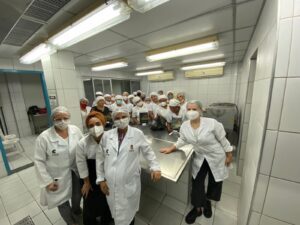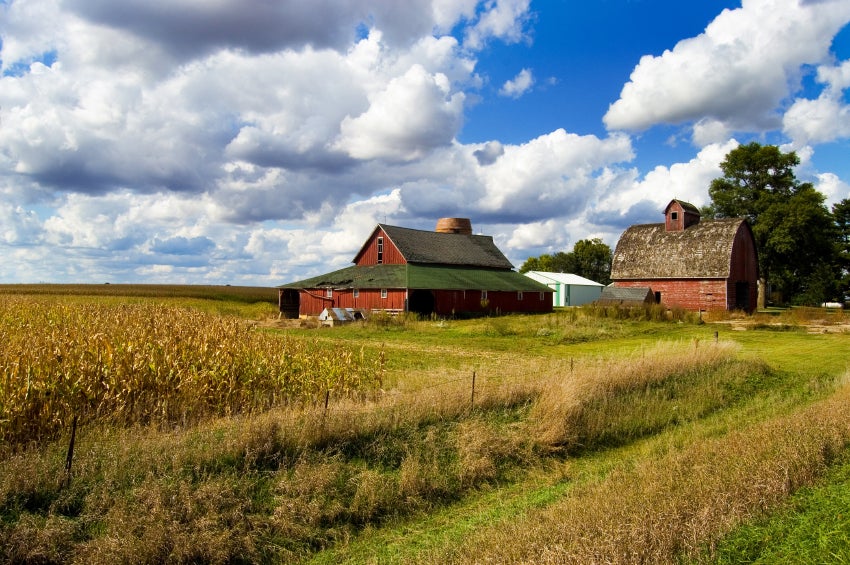
SOBRAL, Brazil—An agreement signed by the Municipality of Sobral, in collaboration with Humane Society International and Mercy for Animals’ Alimentação Consciente Brasil program, will bring healthier and more climate-friendly food to almost 35,000 students attending the city’s public schools while improving the welfare of animals. Lectures on nutrition and plant-based culinary training sessions delivered in late Augustkick-started the implementation of the program.
The initiative seeks to replace 20% of ingredients from animals with vegetables, legumes, grains and fruits in more than 2.3 million meals every year. Teams from Humane Society International and Alimentação Consciente Brasil will train municipal kitchen teams in plant-based cuisine and will share knowledge with school education coordinators about the positive nutritional and environmental principles of making small changes to diets.
Food systems with high intake of animal products have been reported to increase health problems such as obesity, diabetes and cancer. Further, animal agriculture globally is a leading driver of climate change and is directly linked to serious environmental problems such as deforestation and excessive use of water.
The agreement is the result of the city’s participation in the first edition of the Urban Laboratory of Food Public Policies, organized by Instituto Comida do Amanhã and Local Governments for Sustainability, with institutional support from Alimentação Consciente Brasil and Humane Society International.
“We believe that food policies drive sustainable development, can contribute to the regeneration of the planet and also to the health of people in the present, as well as future generations,” comments Alice Martins, senior manager of food policies at Alimentação Consciente Brasil.
In Brazil, about 70% of grains are fed to farmed animals instead of people, a sobering statistic when many in the world face hunger and food insecurity. Indeed, the farm animal production sector is the single largest anthropogenic user of land globally, with meat, egg, dairy and aquaculture production systems using approximately 83% of the world’s farmland while providing just 37% of the world’s protein and 18% of calories. Animal agriculture is also a major contributor to the climate crisis, responsible for at least 16.5% of human-induced greenhouse gas emissions. By changing our food system and consumption habits we can significantly reduce the environmental impact of our food system while also providing adequate nutrition.
“Several municipalities, food service companies, and public and private institutions around the world have implemented similar programs as a means to promote more resilient food systems that align with global commitments to reduce greenhouse gas emissions while also improving animal welfare,” says Thayana Oliveira, food policy manager at the Humane Society International.
The sustainability assessment conducted by Alimentação Consciente Brasil and Humane Society International estimates that this agreement, which the participants signed in April 2022, will:
- Spare 4,200 tons of soy no longer destined for livestock, which is enough to feed about 50,000 adults for one year.
- Preserve 1,400 hectares of land, the equivalent of 800 football fields.
- Save 22 million liters of water, the equivalent to more than 160,000 showers of 15-minutes.
- Reduce 5,000 tons of CO2eq emission, the equivalent of driving a car for 40 million km.
“With this agreement the city of Sobral, recognized as the education capital of Brazil, is taking leadership in advancing public health and sustainability through school meals,” says Francisco Herbert Lima Vasconcelos, secretary of education of the municipality of Sobral.
ENDS
Media contact: Thayana Oliveira Soares, food policy manager for HSI in Brazil, toliveira@hsi.org ; (31) 98484-4890



